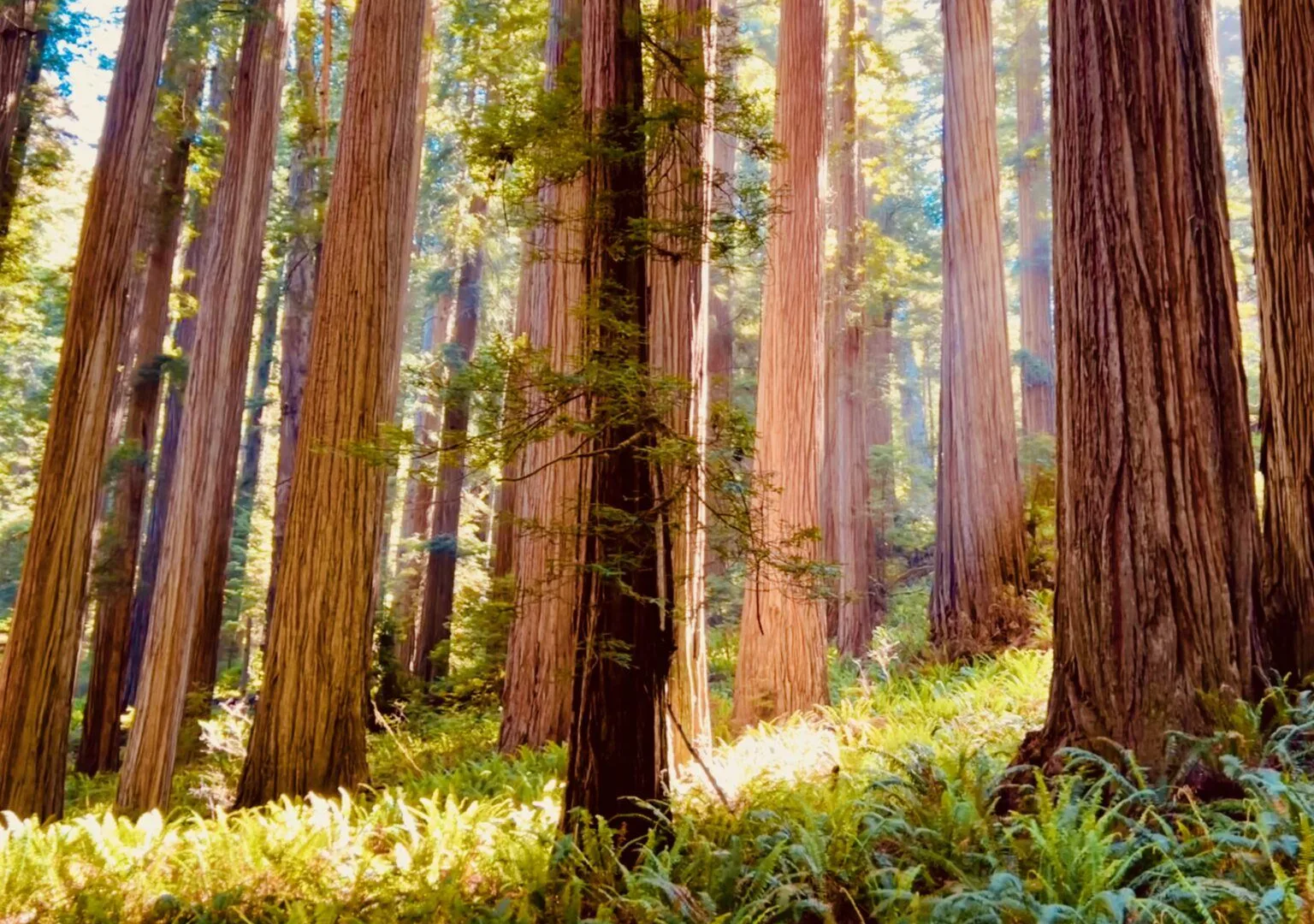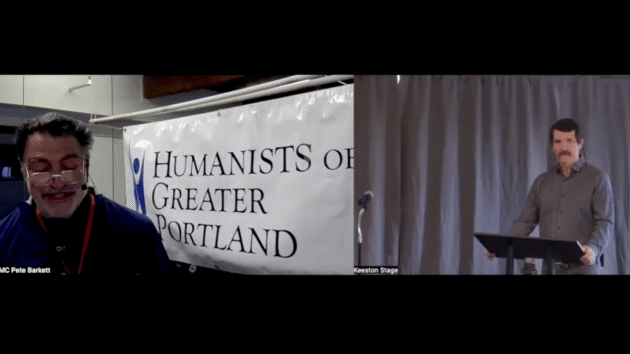Feature photo by Jeffrey St. Clair
May 12, 2025 by Caitlin Hoyland, published by CounterPunch
The Earth is “on the brink of an irreversible climate disaster,” according to “The 2024 State of the Climate Report.” Sounding the alarm on the “emergency” we find ourselves in, the report warns that the situation can no longer be ignored as “the very fabric of life on Earth is imperiled.”
The scale of environmental degradation is no longer just a question of unsustainable practices; it is a direct violation of the Earth’s right to exist, regenerate, and thrive. What we are witnessing is ecocide—the extensive, systematic destruction of the natural environment.
There is a critical need for a movement to recognize nature as a legal entity with rights. Just as human rights are enshrined in law to protect individuals, the rights of the natural world also need to be legally acknowledged.
This is where the work of the Community Environmental Legal Defense Fund (CELDF) becomes so significant. CELDF has supported communities across the world in advancing the rights of nature, from local efforts to larger national and international movements.
How Ecuador is Setting an Example for Upholding the Rights of Nature
“Rights of Nature is about balancing what is good for human beings against what is good for other species, what is good for the planet as a world. It is the holistic recognition that all life, all ecosystems on our planet, are deeply intertwined. Rather than treating Nature as property under the law, Rights of Nature acknowledges that Nature in all its life forms has the right to exist, persist, maintain and regenerate its vital cycles,” explains the Global Alliance for the Rights of Nature.
Among its many successes, in 2008, CELDF supported Ecuador in becoming the first country in the world to include the rights of nature in its constitution. This model was replicated by Italy, which included protection of the environment in its constitution in 2022.
Pointing to how one step in the right direction can inspire other nations to do the same, CELDF stated, “Since CELDF assisted the people of Ecuador to amend their constitution to include rights of nature in 2008, the movement has seen hundreds of other laws passed in countries like Columbia, New Zealand, and Canada.”
These rights have helped Ecuador protect its wildlife and forests. In December 2021, “the Constitutional Court applied the rights of nature to prohibit mining in the Los Cedros Protected Forest,” according to Earth.Org. And in 2022, Ecuador became the first country to recognize the legal rights of animals in a landmark ruling.
These rights are especially important as “Ecuador is among the five most deforested countries in Latin America,” said Natalia Greene, Ecuadorian activist and environmental leader, in a 2023 Mongabay article.
CELDF Helps Communities in the U.S.
CELDF has also been instrumental in initiating similar efforts across the United States, such as in Pennsylvania, where communities have used local ordinances to assert nature’s rights and challenge corporate polluters.
“For two decades, CELDF has worked alongside hundreds of communities to advance rights-based laws protecting communities from factory farming, land application of sewage sludge, fracking, and other harms, by recognizing democratic and environmental rights. In Pennsylvania, communities joined together to form the Pennsylvania Community Rights Network (PACRN) in 2010, which partnered with CELDF and others to draft language for the state amendment,” the organization’s website stated.
These efforts led to Tamaqua Borough in Pennsylvania passing a rights of nature law in 2006, “the first time rights of nature were recognized in any western legal system,” according to CELDF.
The fight to protect nature by local communities led to another win in March 2025. New York introduced the Great Lakes and State Waters Bill of Rights. If this law is passed, it “would be the first ever state-level ‘rights of nature’ law in the United States. It would recognize ‘unalienable and fundamental rights to exist, persist, flourish, naturally evolve, regenerate and be restored’ for the Great Lakes and other watersheds and ecosystems throughout the state,” stated the CELDF.
Through their advocacy, education, and legal support, organizations like CELDF are leading the way in empowering communities to challenge the systems perpetuating environmental harm and to restore balance with the natural world.
The growing movement to recognize the rights of nature represents not only a legal shift but a radical transformation in how we perceive our relationship with the planet.
Why These Legal Protections Are Critical
Despite the looming climate crisis that is already leading to massive destruction, the war economy continues with business as usual, driving record profits at the cost of catastrophic heatwaves, floods, and extreme weather that threaten the planet’s stability and global security. This exploitative system treats nature as a resource to be consumed and discarded, disproportionately harming the global poor. While markets attempt to appease eco-conscious consumers with greenwashed products that disguise their harmful impact, the underlying destructive processes remain unchanged.
To change this status quo, a growing momentum is calling for ecocide to be recognized as an international crime, with the late environmental lawyer Polly Higgins playing a pivotal role in advocating for ecocide to be a fifth crime against peace alongside genocide, war crimes, crimes against humanity, and crimes of aggression.
If we continue to treat nature as a commodity to be exploited, we are not just causing irreversible harm—we are committing an act of violence against the very life-support systems that sustain us. This is why the push to ensure the rights of nature is critical.
Such a shift would radically transform our relationship with the planet, making the destruction of ecosystems as condemnable as the violation of human rights. We would recognize nature as a living, breathing entity that demands respect, protection, and preservation for future generations. This mindset is reflected in many Indigenous philosophies and Buddhist teachings, which view all living beings as interconnected. These worldviews hold that our survival depends on the health of the planet and that nature has intrinsic value beyond its utility to human beings.
The movement for the legal recognition of nature’s rights is deeply rooted in the need to bring about a decolonial shift. Decolonialism seeks to undo the harm caused by colonial systems that commodify nature and subjugate Indigenous knowledge and practices.
As pointed out by plant biologist and writer Robin Wall Kimmerer, who combines her academic background in botanical science and her background as an enrolled member of the Citizen Potawatomi Nation, this shift would restore the “grammar of animacy,” leading to nature being recognized and understood as kin, rather than as property, thus dismantling the Western ideology of individualism and hierarchy.
Caitlin Hoyland is a writer and human rights advocate interning with CODEPINK’s Local Peace Economy program. She has written extensively on conflict, displacement, and social justice.



